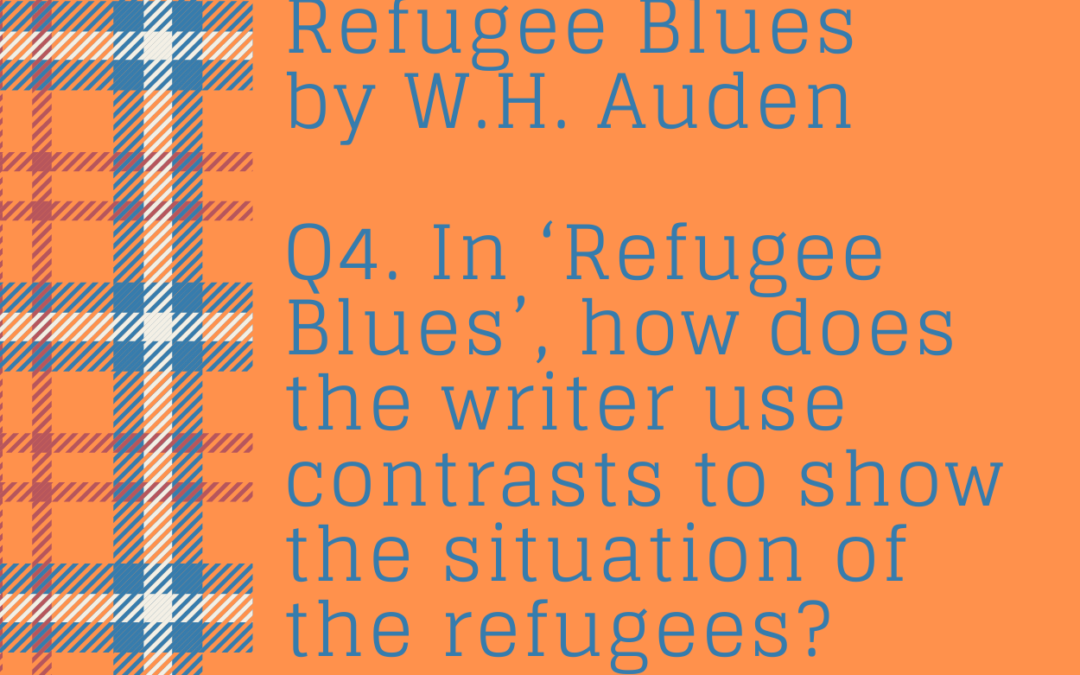Edexcel English IGCSE: Refugee Blues Model Essays
Q4. In ‘Refugee Blues’, how does the writer use contrasts to show the situation of the refugees?
In your answer, consider:
- the refugees’ past and present situation;
- the refugees and the people living in the city;
- nature, animals and humans;
- the use of language.
You should refer closely to the poem to support your answer. You may use brief quotations.
Edexcel English IGCSE Model Essay by an Expert
The contrasts throughout this poem highlight the injustices faced by the refugees. There are contrasts within the refugees’ life histories, with the residents of the city and between nature and humanity.
There is a contrast between the refugees’ lives before and after they had to leave their home country. This is expressed explicitly in the second stanza. The expression “we had a country” shows their attachment to Germany; they felt ownership over it, creating a sense of true belonging. This makes their current displacement more tragic. The contrast between “Once” beginning the stanza and “now”, repeated at the end, creates a poignant sense of longing for the past. This attachment to the past is not just nostalgic, however. The narrator is still haunted by past experiences: he hears Hitler’s voice in “thunder rumbling in the sky”. This suggests that perhaps the contrasts between his past and present states are not as strong as they should be; they still feel vulnerable.
Despite the fact that the refugees have been forced to come to this new place, they are treated very differently to the current residents of the city. The first stanza highlights the contrasts between the rich and poor in the city with a repeated structure: “Some are living in mansions, some are living in holes”. However, despite this vast inequality, the refugees are in a worse situation than any of them, because they have no place to live at all. The refugees are also viewed as qualitatively different to the local residents. A speaker at a public meeting accuses them of wanting to “steal our daily bread”, as if they are less deserving of rations than non-refugees. The Christian connotations of “daily bread” also add a religious element to these perceived differences.
The writer also creates a contrast between nature and humanity, to show the inhumaneness of the refugees’ treatment. The narrator sees “the fish swimming as if they were free”, showing that animals in nature can roam free and happy, even if they are trapped in water. This is not the case with the refugees, whose movement is restricted by their paperwork. He also sees “birds in the trees” who “sang at their ease” because they are not at the mercy of powerful and tyrannical politicians, like the refugees are. The carefree song of the birds is in direct contrast to this poem, which is entitled and structured as a “blues” song, which is a song of suffering. These contrasts with nature show how unnatural it is for the refugees to be in such misery.
The refugees are in a miserable and unjust situation. It is made to seem even worse because of the contrasting affluence and freedom around them.
Students also browsed:

